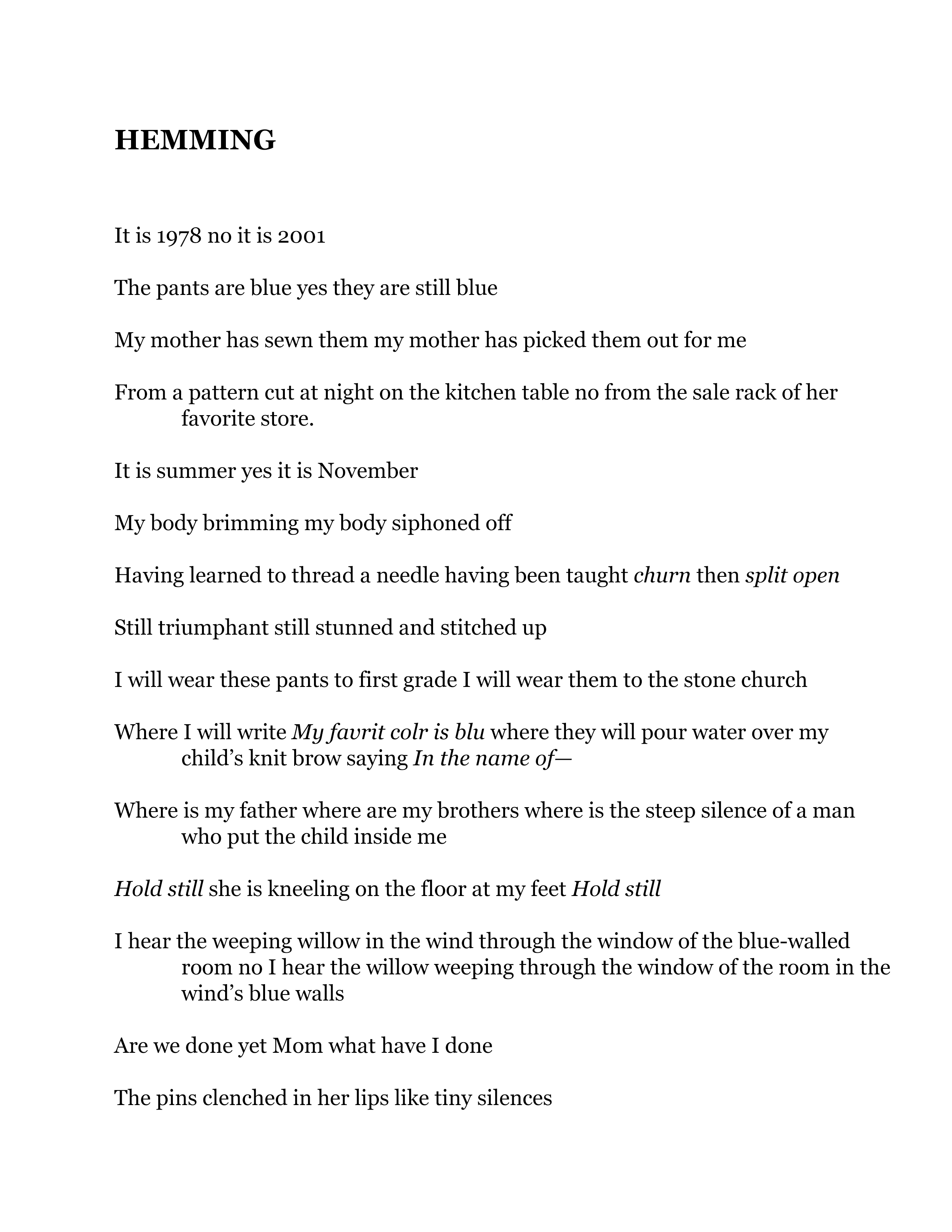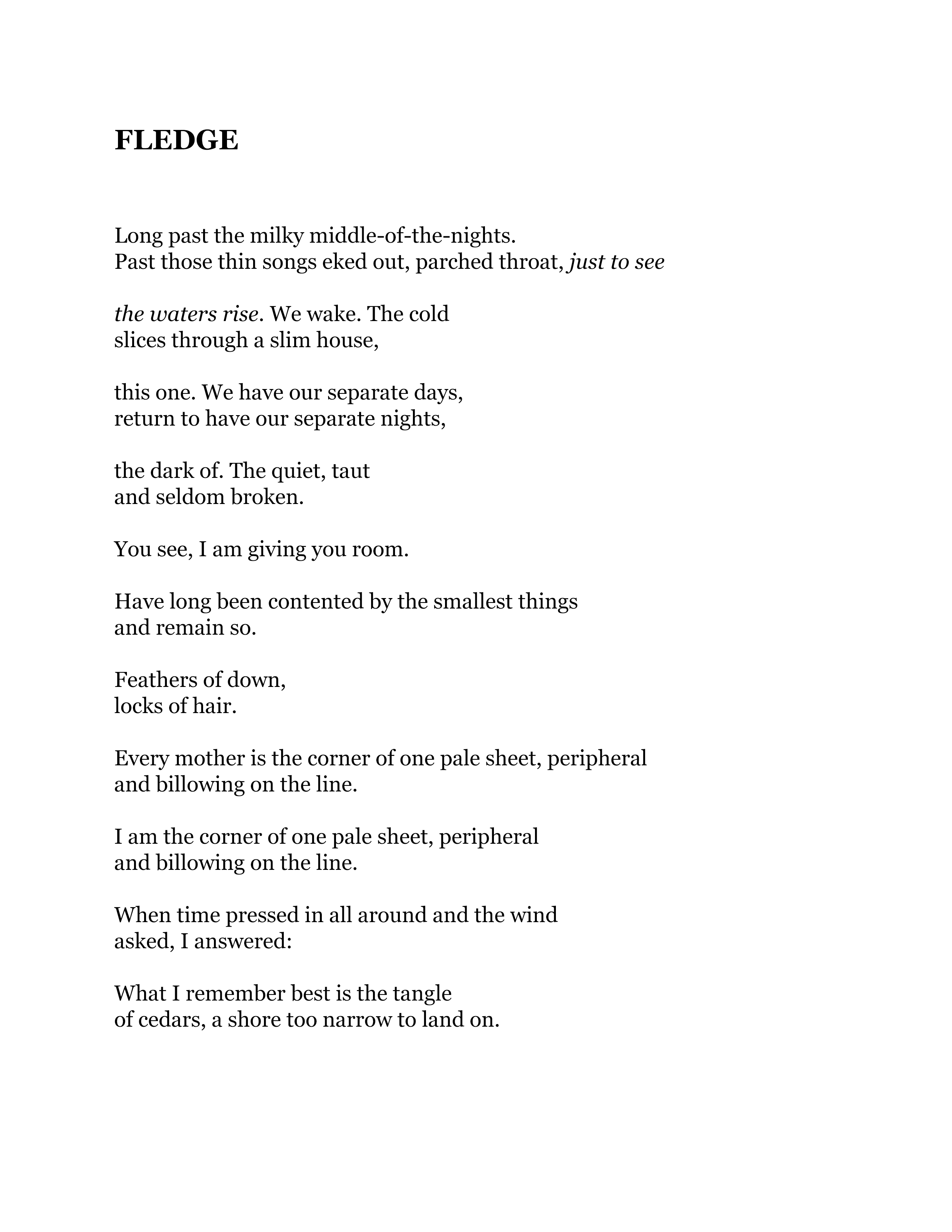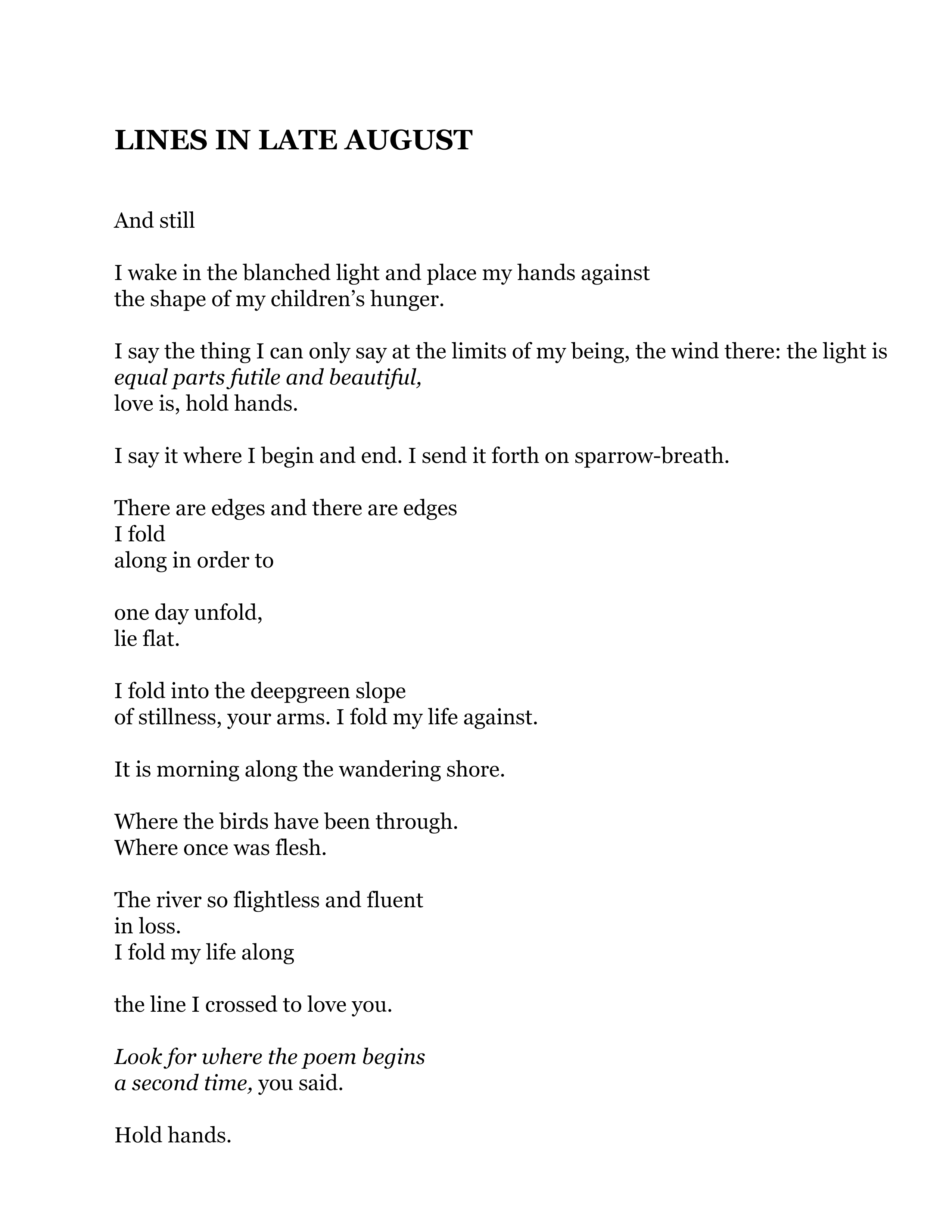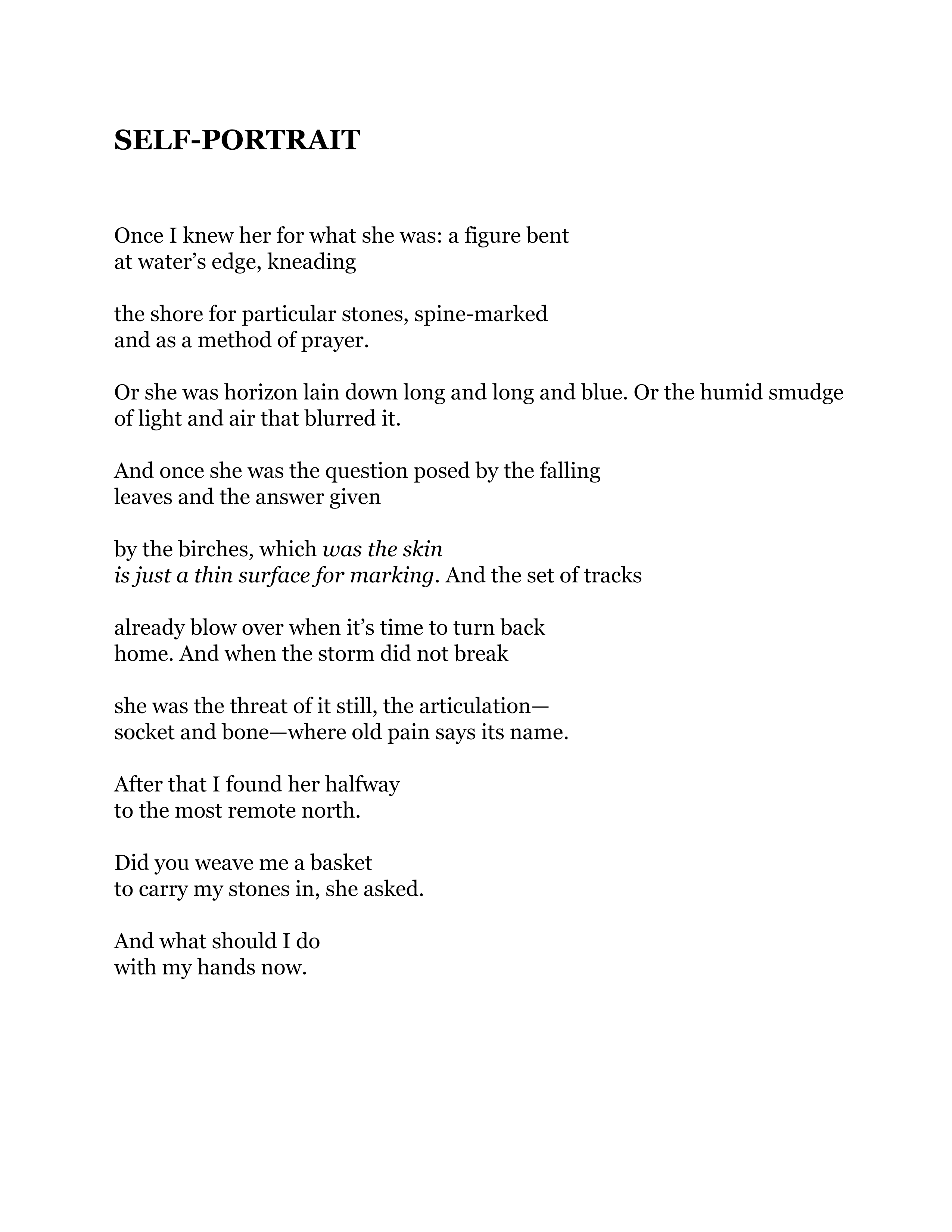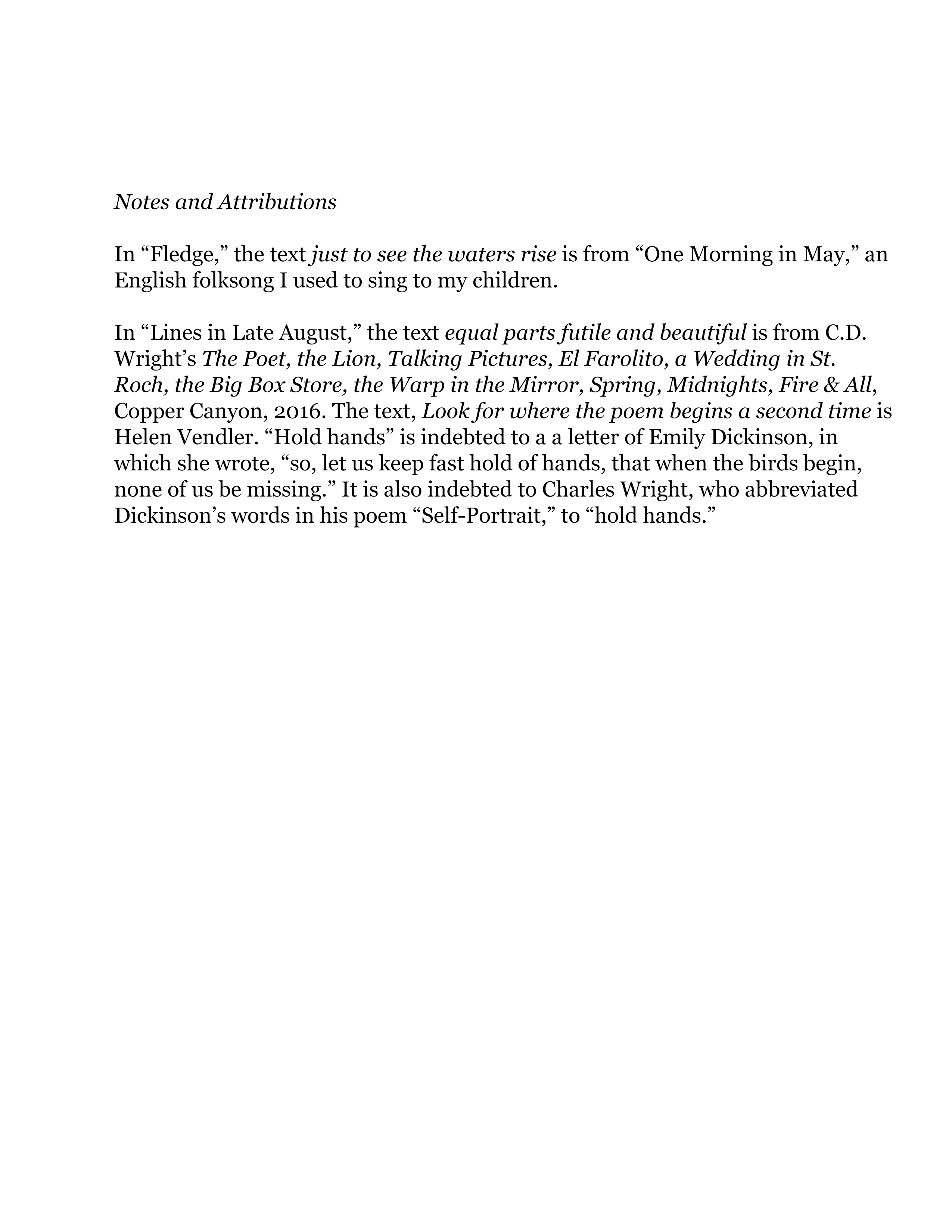4 poems by Molly Spencer
1 essay by Jayce Russell, on the poems of Molly Spencer
Individual identity is a lonely thing, ain’t it? “Fledge” moves to its conclusion when “time pressed in all around,” speaking to that dreaded sensation we give time, the endless motion of all things towards their own conclusions–and us, if we are limited to individuality, to ours. Through these poems, the speakers fold, act, react, such that their identities are ever-shifting, interconnected and reflexive, constructing identity as so interwoven and time so fluid that we can ultimately never quite succumb to nor find relief in finality.
The opening line of “Hemming,” “It is 1978 no it is 2001,” unsticks us (borrowed) from and conceptually delegitimizes linear time (a poem is an immediate thing, after all, even if we take a few minutes to read through it; it is an object on a page / screen that exists immediately all at once–we’re the ones ticking the clocks) as easily as a page’s flipping. From there, we can see that each of these poems opens with some measure of time marker–“Long past,” “And still,” “Once I knew”–that disputes strict chronology by how easily language can be used to rummage through it. Repetition / revision is inherent the moment one is removed from linear time, which drives “Hemming” but is used to different effect in “Fledge”:
Every mother is the corner of one pale sheet,
peripheral and billowing on the line.
I am the corner of one pale sheet,
peripheral and billowing on the line.
While “Hemming” does this in an experiential fashion, “Fledge” is more conscious and psychological: the metaphorical construction followed by the application reveals an experience that necessitates, by our perception, linear time, but which occurs folded over itself.
As these poems drift through time–sometimes steering the ship, sometimes steered by what they uncover–they follow a light that is (as noted above) a “smudge,” “blurred,” “blanched,” and “futile and / beautiful,” (borrowed, importantly) when it is not defining through its absence: “nights // the dark of.” Though these direct uses don’t appear in “Hemming,” “night,” “summer,” and “November” are particular junctions between time and light that summon our personal experiences, specifically lit by how the sun hangs in the sky. The image of the mother toiling at the kitchen table at night is incandescent in the details it reveals and the ones it asks us to envision. Light here is a tool that helps us understand that–while the vast distances between us are ultimately insignificant–proximity blurs definition.
If time and light are the elements, endless and empty, where within these two do we find identity? “Where is–” everyone? Separations repeat in these poems, knifing out the speaker who reaches for the real and intangible–placing hands “against the shape of [their] child’s hunger” as one of many moments mapping the self through relation. If we see that self reflecting in “the line I crossed to love you,” we have to abandon that certainty in “Self-Portrait,” as the subject-object relationship collapses into second person uncertainty with a figure who is both a “smudge of light and the air that blurred it.” This stepping-outside exists as an inflicted dissociation and an intentional gesture, the only option the overwhelmed individual has for dealing with the magnitude of all things.
These speakers are so full of experience, so “at the limits of [their] being” that the lines between the self and others necessarily blur. The end result is a vision of a patchwork existence, made of distances and quotations, made of the gaps where something was taken away to become a part of someone else and the pieces those else’s left behind. Identity here emerges through relations to others, leaving us to see that this great unity through which we escape singular being is one of both support and destruction, driven as readily by our faults as by our strengths. The arrangement of the closing lines of the final two poems (touched as they are by many hands over the years, as noted by the footnote), an answer preceding a question, excite these tensions, smacking me again right out of time:
Hold hands.
-Lines in Late August
And what should I do
with my hands now.
-Self-Portrait

